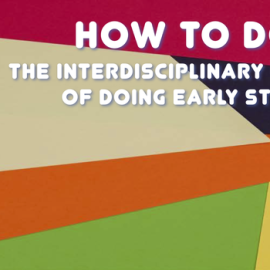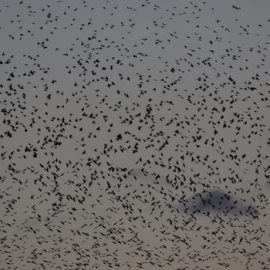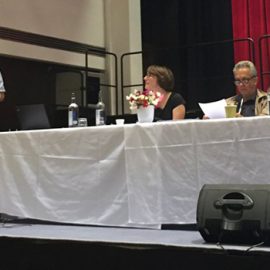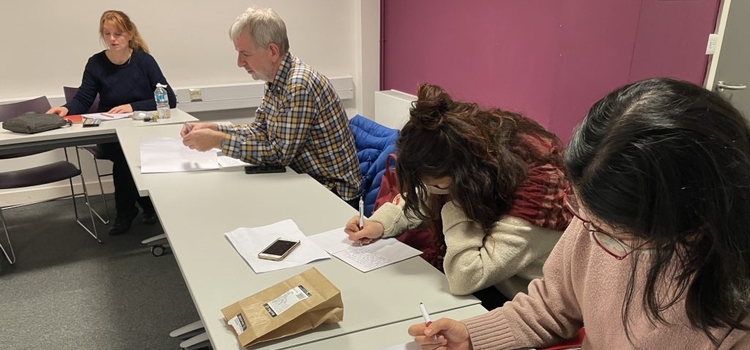
The first part of the Nuclear Futures event, one of three events in the CSS Emergent STS series, was held on Thursday 28 October 2021.
Due to the widely reported severe weather conditions in Cumbria on the event day, the trip to Seascale unfortunately had to be cancelled. The event, however, went ahead in part, with some of our collective work relocating to Lancaster University campus. A huge thanks for the participants who joined us, for their flexibility and to those who could not for their understanding. The participants who joined us in Lancaster spent the day, warm and dry in seminar rooms, where we explored our relationships to nuclear things using virtual psycho-geography, a show and tell session, and writing about nuclear futures.
Our first exercise, led by Dr Philippa Holloway, involved tapping into the sensory, emotional and behavioural aspects of a familiar nuclear-related place, and drew upon participants’ tastes, smells, movements, and affective connections to their chosen place. We wrote in journals and annotated maps. From this, we each wrote a short piece that included some/all of the aspects that we jotted down about our place to create a deeper understanding of our connections with nuclear spaces and materialities.
Many other topics cropped up during our discussions, including:
- Foucault’s concept of a heterotopia (an ‘other’ space, a world within a world e.g., a hospital, Chernobyl, a refugee camp).
- Noticing and not noticing – the potential indifference of some people to nuclear power and nuclear things, possibly dependent upon where people were situated and where they work.
- Nuclear architecture and the physical dimensions of nuclear spaces, including Sylvia Crowe’s work on Wylfa power station in Wales.
- The history, temporalities and human timescales of nuclear power and technical processes at Sellafield.
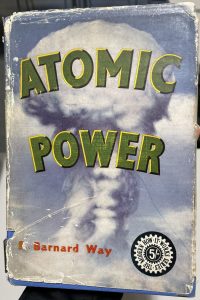 Some participants had brought with them artefacts that linked with their nuclear experiences, which they shared with the group. Examples of artefacts brought in included winkles used in a study published in a 1980 journal article, a book about atomic power from around the time of its initial commercial usage, a “toxic sludge” candy, and a handbook of procedures at Sellafield. This session enabled the development of our narrative pedagogies and allowed us to explore the geopolitics of nuclear power, with the help of our artefacts, collective experiences and stories.
Some participants had brought with them artefacts that linked with their nuclear experiences, which they shared with the group. Examples of artefacts brought in included winkles used in a study published in a 1980 journal article, a book about atomic power from around the time of its initial commercial usage, a “toxic sludge” candy, and a handbook of procedures at Sellafield. This session enabled the development of our narrative pedagogies and allowed us to explore the geopolitics of nuclear power, with the help of our artefacts, collective experiences and stories.
The final exercise, Nuclear futures, what’s next? involved thinking back to our notes on the sensory / emotional / behavioural aspects of nuclear power, and trying to envisage what a future of nuclear power could look like. This task was more challenging for some participants, as there are a lot of unknowns when dealing with speculative futures. In this session, we discussed the documentaries Into Eternity and The Other Side of the Fence, and explored psychosocial violence with regards to displacement, such as the events in Fukushima, Japan. We looked at temporalities in the context of human-nuclear relationships, and discussed lost knowledges and lost meanings.
What’s next for us?
The Nuclear Futures team are busy rescheduling a visit to Cumbria in the new year. Building on from Thursday’s session, we hope to organise an escorted visit around Sellafield nuclear site.
We also plan to put on an exhibition of some artefacts created submitted by participants of Nuclear Futures. It is hoped that this might include a creative piece penned by Dr Philippa Holloway based on our discussions, a collaborative poem, a consolidates annotated nuclear map of Cumbria and Lancashire, photographs and more besides.
We will be in touch with all participants to inform them of the new dates for the visit and the exhibition as soon as they are both re-arranged.

